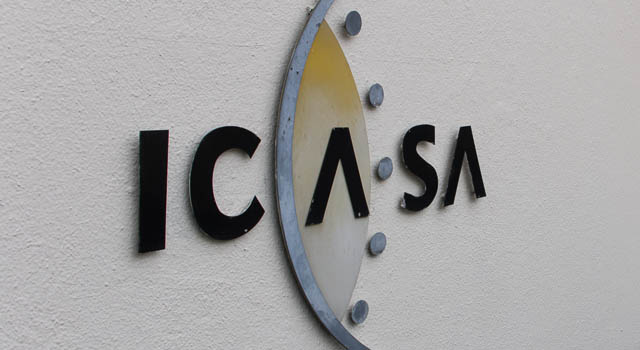
The Independent Communications Authority of South Africa (Icasa) and its striking workers have not yet started negotiations to end an ongoing strike.
This is according to the leader of the strike, Suzan Mashinini, who has joined workers in industrial action that stretched into its ninth day on Thursday.
Workers are demanding salary increases back-dated to 2015 and bonus pay from 2014.
Other demands include the reversal of human resource policies and restructuring that took place in the 2014/2015 financial year.
But negotiations are yet to start as Icasa management want representatives of the strike to submit a mandate and signatures of staff who are part of the labour action, said Mashinini.
Striking Icasa workers are currently not represented by any union and have instead turned to Bhekiguru labour consultants for assistance in the matter.
After approaching the Commission for Conciliation, Mediation and Arbitration (CCMA), the workers were given permission to strike amid the dispute not being resolved.
“The employees find it weird that the employer never questioned signatures and representation when the matter was presented at the CCMA. The question is why now and where is the consistency?” Mashinini said.
“If the signatures and representation were an issue, the CCMA — who are labour experts — would have questioned it and that has not been the case,” added Mashinini.
The striking workers were represented by the Communications Workers Union (CWU) on restructuring at Icasa in 2014 and 2015, but the workers left the union after a disagreement.
Icasa has claimed that it decided on an agreement with CWU on revised employment conditions, but workers say the union failed to represent their mandate.
The CWU on Wednesday, however, reportedly distanced itself from claims it had signed a restructuring agreement with Icasa.
Icasa, in a statement this week, also said employees drafted a petition to management in November 2015 asking to be engaged amid the termination of CWU services.
Subsequently, Icasa said that its management arranged a meeting with employees on 27 November 2015 but that none of the employees pitched up.
Mashinini said that the workers didn’t attend the meeting because they were still trying to attain formal representation in the matter.
“The employees didn’t have a mandate because they were not organised like now and they had no lawyer. And they were afraid of being victimised since that has been the practise at that time,” Mashinini said.
“So hence they (workers) requested the employer to respond to the whole staff and not individuals.
But Icasa, in a statement earlier this week, said that regarding allegations of staff intimidation “only one person was charged on matters outside of the strike”.
Icasa said the matter will be dealt with “according to relevant policies of Icasa”.
Nevertheless, Mashinini said her and staff are willing to negotiate with Icasa over the strike.
“And yes we are willing and waiting for management to engage us because as employees we still have the interests of Icasa at heart. We want to go back and serve the public,” she said.
“We are also ready as employees to commence with the negotiations,” Mashinini said.
Amid the current strike and the debate over signatures and a mandate, Mashinini last week said that she questioned the seriousness of Icasa management in resolving the issue.
On Wednesday this week, Mashinini again questioned this “seriousness”.
“They are busy pondering on the signatures and this has been happening for over a week now,” she said.
“So the question is, where is the seriousness?” she asked.
Icasa did not respond to questions sent on Wednesday about the status of the strike.
But earlier this week, it released a statement challenging Mashinini’s statements about the regulator’s “seriousness” regarding the strike.
“Icasa has, in the previous week, learnt with dismay from an online newswire quoting one of the striking employees who said the employer is not taking this strike seriously,” said Icasa in a statement.
“This is contrary to the truth as we, as the regulator have to champion the cause of compliance,” added Maseka.
Icasa, in its statement, then outlined how it has attempted to engage with employees.
These attempts included informing striking employees in writing that they needed to obtain a mandate from their constituency and confirm their representatives.
Icasa said that on the second day of the strike on 5 July, the regulator’s council called a meeting with workers to find out who their representatives are.
But the issue of identifying representatives wasn’t resolved, said the regulator.
“Council agreed to appoint an independent mediator to facilitate discussions on all matters raised by employees,” said Icasa.
Icasa further said that it issued a notice to staff on 2 July “acknowledging that every employee has a right to strike”.
“However, it should be noted that Icasa has duty to service its licensees and clients, as well as to protect the rights of those employees who have decided not to participate in the strike. There is therefore no need for Icasa to intimidate staff who are on strike,” said the regulator.
“Icasa is open to communication with staff representatives to ensure that all matters are resolved on an expedited basis,” it said.
“The council of Icasa is ready to appoint a mediator to mediate on this matter as soon as striking employees elect their representatives, to ensure that there is speedy resolution to the strike.”

